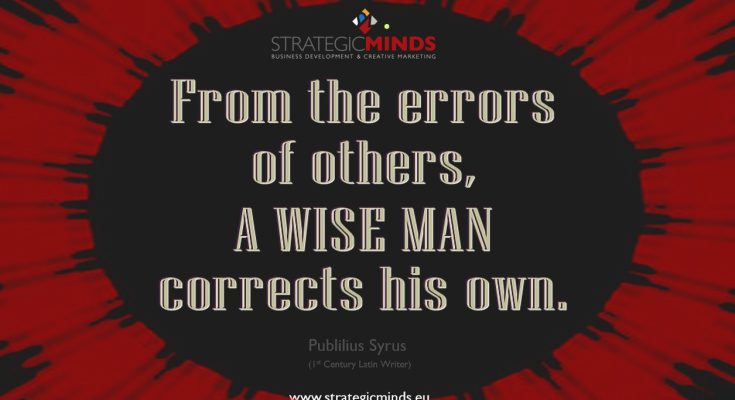Mistakes are often treated as detours from success, moments to be buried or brushed aside in the rush to move forward. But in truth, they are among the most valuable learning tools available. When approached with curiosity and humility, mistakes offer insight into our habits, assumptions, and decision-making processes. They reveal blind spots, challenge our thinking, and invite us to grow in ways that success alone cannot. In business, education, and personal development, the ability to learn from your own mistakes is not just a skill—it’s a mindset that fosters resilience, adaptability, and long-term progress.
The first lesson mistakes teach is about awareness. A misstep forces you to pause and examine what went wrong, which often uncovers patterns that were previously invisible. For example, a professional who misses a critical deadline might realize that their time management system is flawed or that they’ve been overcommitting without recognizing the limits of their capacity. This kind of reflection is uncomfortable but necessary. It shifts the focus from blame to understanding, allowing for meaningful change. Without that moment of reckoning, the same mistake is likely to repeat itself under different circumstances.
Mistakes also highlight the importance of preparation and process. When something doesn’t go as planned, it’s rarely due to a single factor. More often, it’s the result of a series of small decisions, overlooked details, or assumptions that didn’t hold up. By retracing your steps, you begin to see where the breakdown occurred. A student who performs poorly on an exam might discover that passive reading isn’t enough and that active recall or spaced repetition would have been more effective. This realization doesn’t just improve future performance—it deepens the learner’s understanding of how they learn best.
Another powerful lesson is the role of emotional regulation. Mistakes often trigger frustration, embarrassment, or self-doubt. Learning to navigate these emotions without letting them derail your progress is a form of psychological maturity. It’s the ability to sit with discomfort, extract the lesson, and move forward with clarity. In leadership, this is especially critical. A manager who mishandles a team conflict might feel defensive or disappointed, but if they can reflect on the experience and adjust their approach, they become more empathetic and effective. The mistake becomes a turning point rather than a setback.
Mistakes also teach humility. They remind us that no one is immune to error and that learning is a continuous process. This humility opens the door to collaboration and feedback. When you acknowledge your own missteps, you become more receptive to others’ perspectives and more willing to ask for help. In business, this can lead to stronger teams and better decision-making. A startup founder who misjudges market demand might pivot more successfully if they’re willing to listen to customer feedback and consult with advisors. The mistake becomes a catalyst for innovation rather than a mark of failure.
Importantly, mistakes help refine judgment. Each error provides data—about timing, context, execution, or communication—that can inform future choices. Over time, this accumulation of experience sharpens intuition and strategic thinking. A marketer who launches a campaign that falls flat might learn more about audience segmentation, messaging, or timing than they would from a successful launch. These insights, though hard-earned, contribute to a more nuanced understanding of the field. The mistake becomes part of a broader learning curve that enhances expertise and confidence.
Mistakes also reinforce the value of accountability. Owning your errors, rather than deflecting or denying them, builds credibility and trust. It signals integrity and a commitment to growth. In professional settings, this can strengthen relationships and foster a culture of transparency. A team member who admits to overlooking a key detail and takes steps to correct it demonstrates leadership, even in the face of error. This kind of accountability encourages others to do the same, creating an environment where learning is prioritized over perfection.
The process of learning from mistakes also cultivates adaptability. It teaches you to adjust your approach, rethink your assumptions, and remain open to change. This flexibility is essential in a world where conditions shift rapidly and certainty is rare. A business strategist who miscalculates a trend might use that experience to build more robust forecasting models or diversify their sources of insight. The mistake becomes a lesson in agility, preparing them to respond more effectively in the future.
Ultimately, the most important thing to learn from your own mistakes is that they are not the opposite of success—they are part of it. They are the raw material from which growth is shaped, the feedback loop that refines skill and character. By embracing mistakes as opportunities rather than threats, you build a mindset that is resilient, reflective, and forward-looking. You learn not just what went wrong, but how to do better, think deeper, and lead with greater wisdom. In this way, mistakes become not just lessons, but leverage—tools that propel you toward your goals with greater clarity and conviction.


